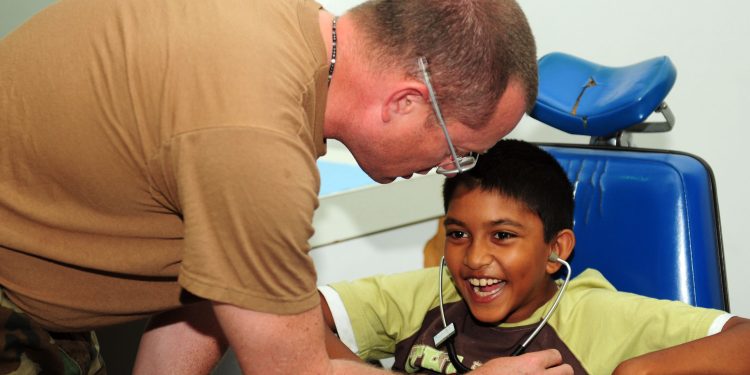Cerebral Palsy or CP refers to a series of disorders that can influence the affected person's muscle movement and balance due to an injury in a part of the brain. It is relevant to note that the terminology cerebral has a link with the brain, and palsy refers to weakness or issues with body movement.
The condition may occur before, during, or after the birth of a child. Usually, children with CP show the symptoms within a few months of birth. But in some cases, a CP child may not show any signs until a few years. Symptoms may vary from person to person. However, the most common symptoms of a CP patient can include abnormal muscle tone, difficulty speaking, intellectual disability, tremors or seizures, excessive drooling, etc.
The exact cause of this most common disability remains unknown till now. Yet, some possible causes that may contribute to CP include premature birth and lack of oxygen or blood during the birthing process. Unfortunately, there is no cure for cerebral palsy which means the child has to live with this disability. However, few treatments exist that can only help the patient avoid further complications and help them live an improved quality of life.
The sad fact is that cerebral palsy might be medical negligence – a preventable mistake made by a healthcare professional during the childbirth process. So do you believe there has been medical malpractice due to which your child sustained cerebral palsy? Surely, it may pose many social, financial, and emotional challenges to you and your family. If such is the case, you may be eligible to file a cerebral palsy lawsuit and hold the medical staff accountable for their negligence. Experienced lawyers can help you get the rightful compensation you deserve.
Raising a child with cerebral palsy is no easy feat. The parents may encounter many challenges; some of them are:
-
Financial Issues
Having a child with cerebral palsy disorder can bring significant financial issues to the parents.
-
Medications and equipment
Once your child has been diagnosed with CP, your next step is to find a lawyer for your case. Next, you need to look for different treatment options, whether your child needs to go for surgery or therapy. Then, of course, you also need to buy prescribed medications. Keep in mind that none of these options are cost-effective.
In some instances where a CP child has more disabilities, parents need access to special equipment such as a wheelchair, bath chair, walker, communication devices, etc. Unfortunately, these assistive technologies and equipment come with high price tags and need replacement as the child grows.
Parents need to invest in lifts and slings to help with the mobility of their children with cerebral palsy. A patient lift and sling work together for a complete patient transfer system. The lift hoists the patient while the sling hooks up to the lift’s arm to safely cradle the child during the transfer.
-
In-home care
A cerebral palsy child needs assistance 24/7. So chances are you need to take the help of in-home care services. Or one of the parents needs to either reduce the working hour or entirely resign from job commitments. As a result, it may impact the financial situation of the home.
-
Special schooling
Most CP children with mild symptoms can pursue their education with normal children since they don't have any learning or intellectual disabilities. Or they don't require any special equipment. Yet, CP children with communication or physical limitations can't learn at the same pace as other kids at the school. Therefore, parents can either appoint an in-home tutor or consider enrolling in special schools.
-
Impact On Family
Having a child with cerebral palsy disorder can strain a marital relationship or cause instability in other family relationships.
-
Marital conflicts
Of course, raising a child with a disability requires plenty of time and energy. Due to this, the spouse or other children often start feeling neglected. Sometimes, one partner feels like they are paying more attention and think that the other person isn't involved much. But on the other hand, the other partner may feel left out or uninformed due to the lack of communication.
-
Sibling issues
While siblings of the CP child may be more understanding and patient, in some cases, parents' lack of attention may invoke a feeling of jealousy in siblings. Simply put, compromised care for other children may result in sibling rivalry.
-
Psychological problems
Parenting a child with CP disorder can invoke different psychological issues in parents.
-
Stress and worry
As a parent, you might worry about your child's future. Several questions may cross your mind now and then, leaving you anxious. For instance, will my child ever perform daily tasks like a normal child or be able to seek education like a regular student? Or who will look after my child if I'm no more in this world? All these questions can increase the stress level.
-
Sense of loneliness
Social discrimination can bring up different negative emotions such as anger, frustration, tiredness, guilt, etc. Because of a lack of societal support, parents often isolate themselves, due to which they often feel lonely.
-
Social Problems
One of the most common challenges parents face raising their children with cerebral palsy is societal pressure and negativity. However, most people are considerate and empathetic. They understand the situation and what it takes to raise a child with a disorder. But unfortunately, that isn't always the case. Some people don't understand or accept the child's inabilities, special needs, or behavioral issues. Since it harms the parent's and child's mental health, they avoid socializing.
Furthermore, parents find it difficult to attend social gatherings or do routine tasks, like go on shopping with their CP child. They fear that when their child may have an episode of seizure, people will stare or pass rude remarks, even blame the parents for their condition.
Final Thoughts
According to statistics, approximately 760,000 people in the United States currently suffer from cerebral Palsy disorder. Unfortunately, taking care of a child with cerebral palsy is no piece of the cake. Patients with CP are most likely to depend on someone, especially their parents, due to their disability. The disorder does not only affect the patient. Instead, it takes a toll on the family too. The challenges may reach a new height for parents who have to raise their CP child. And while it's okay to feel different emotions when you go through the challenges when parenting your CP child. Still, maintaining patience and being compassionate are the two best ways to overcome these challenges and support your child to live the best possible life.

























